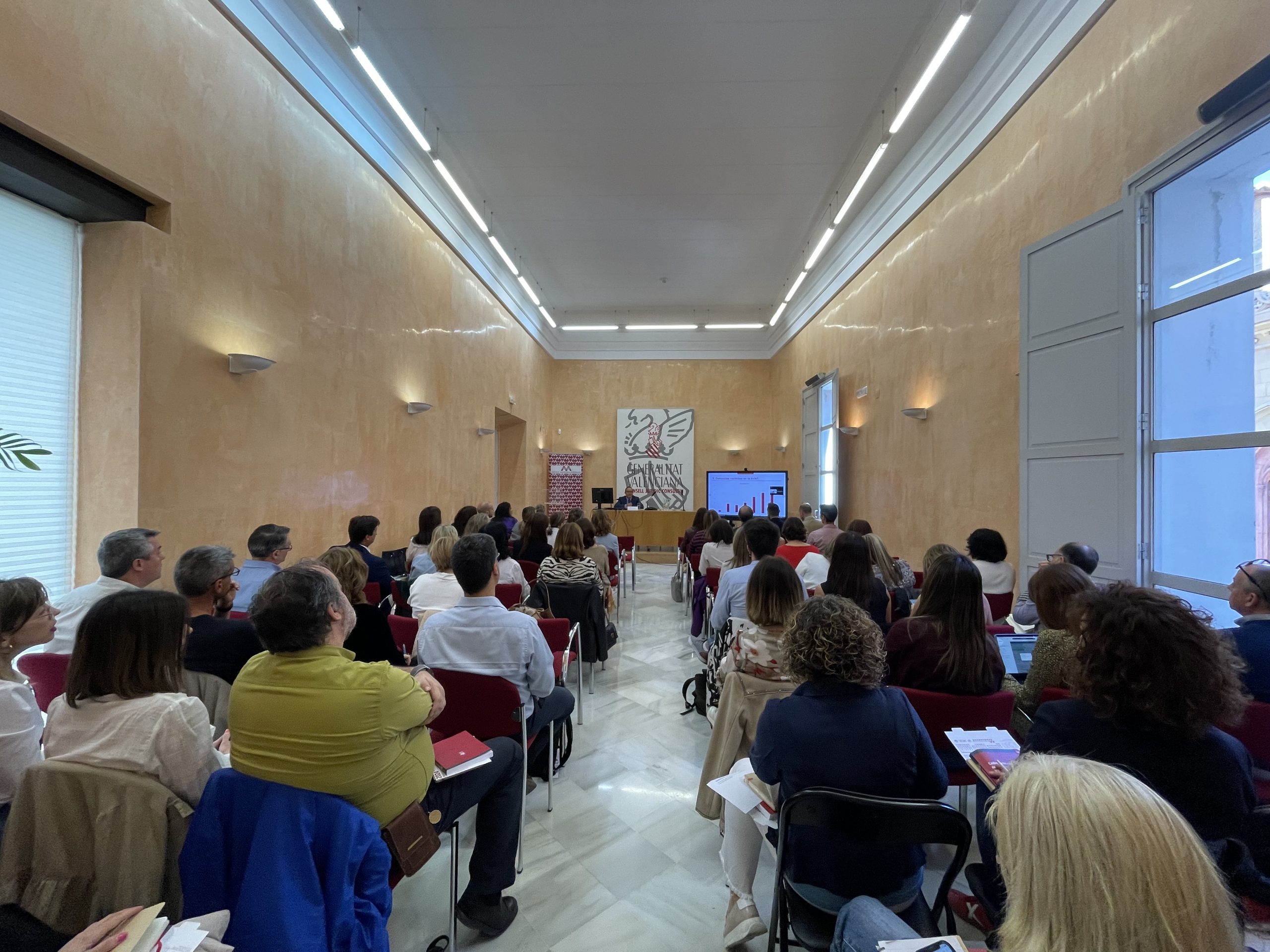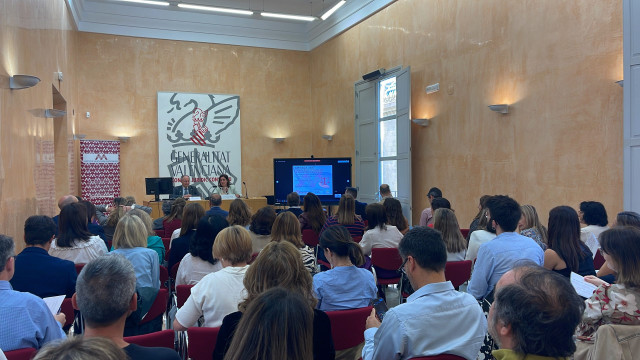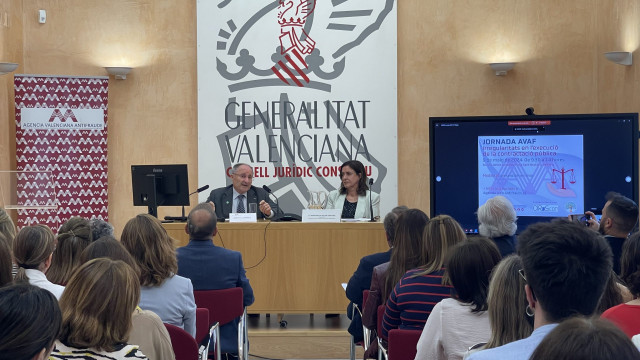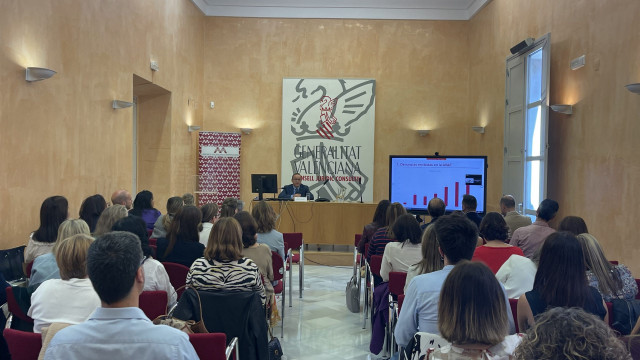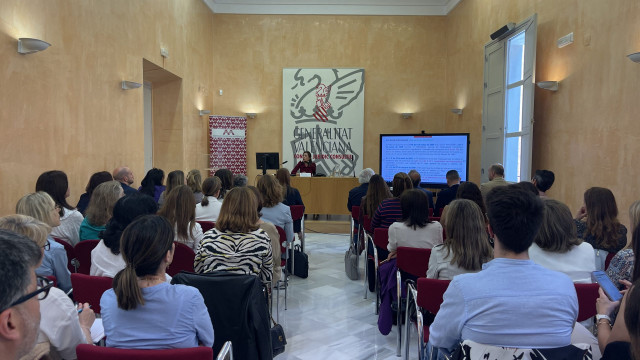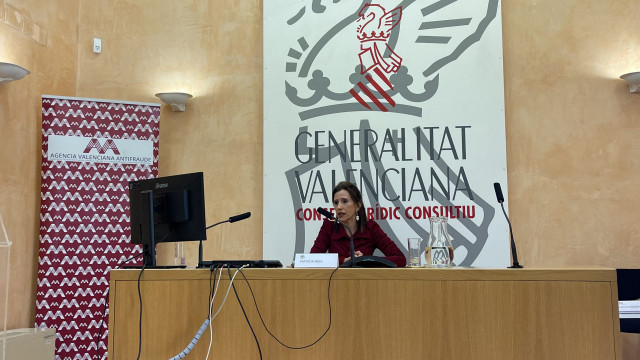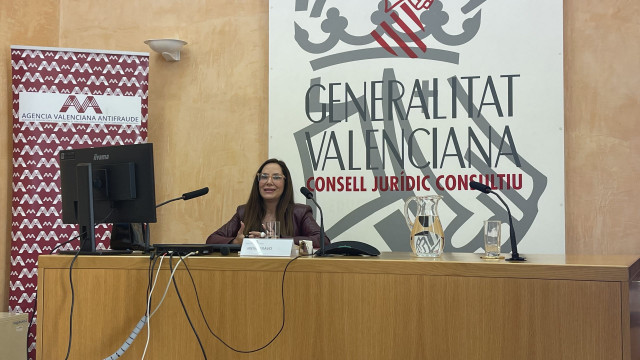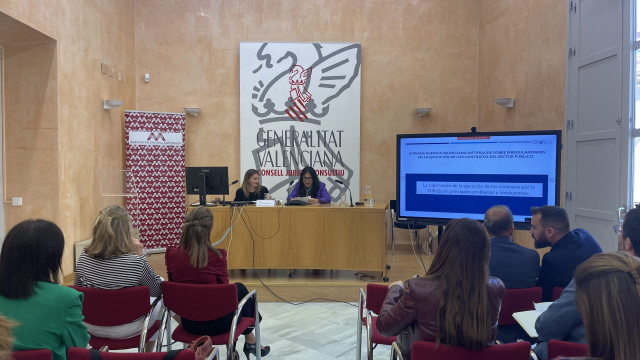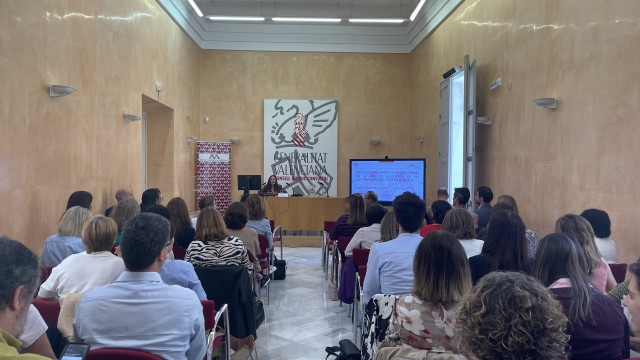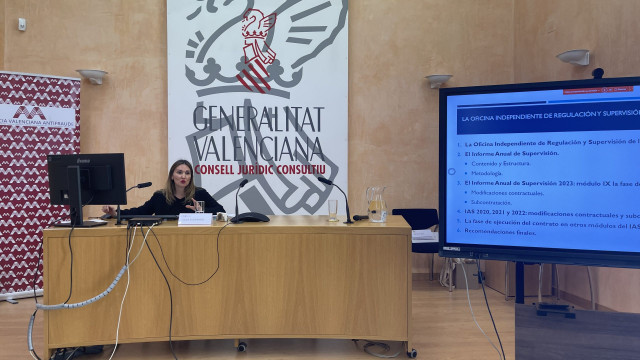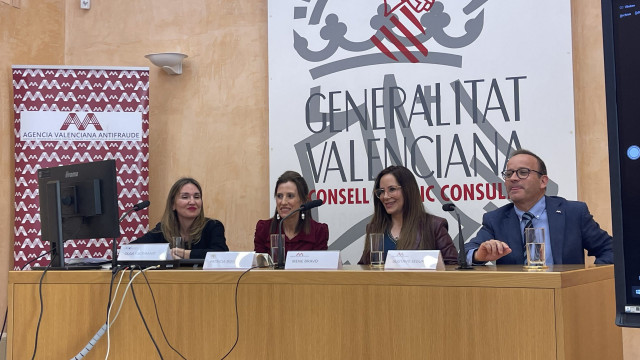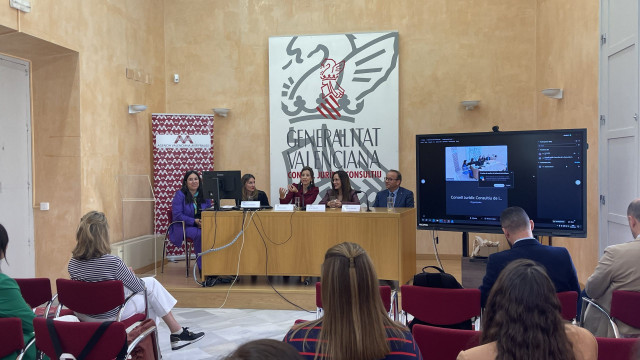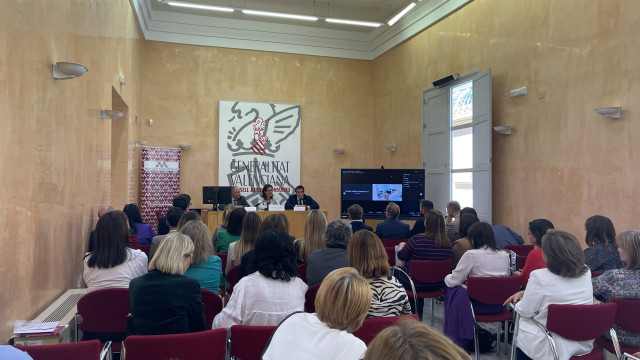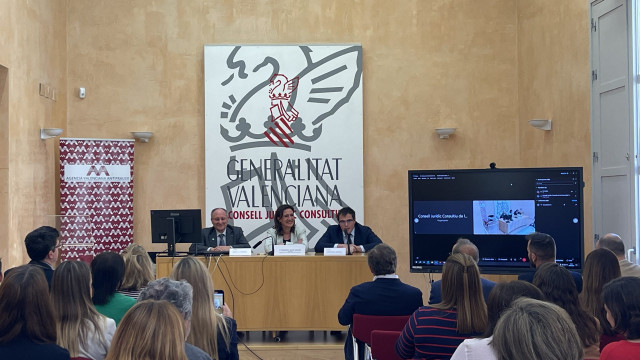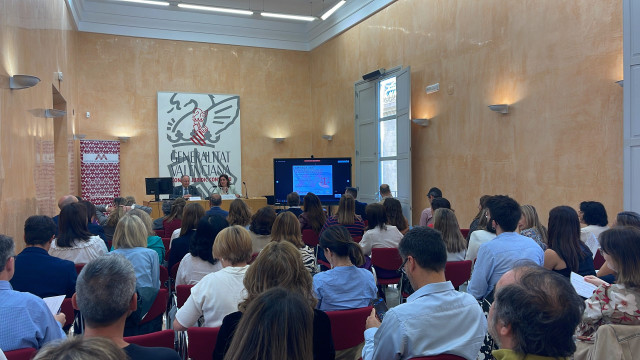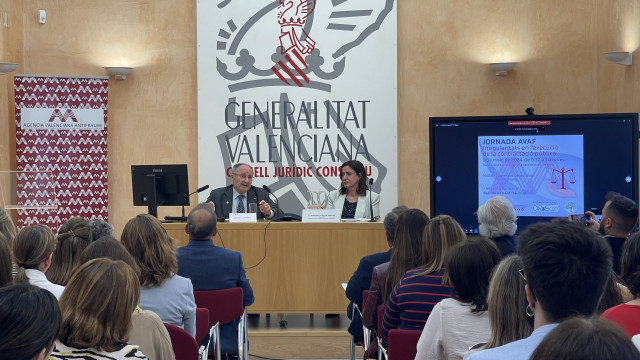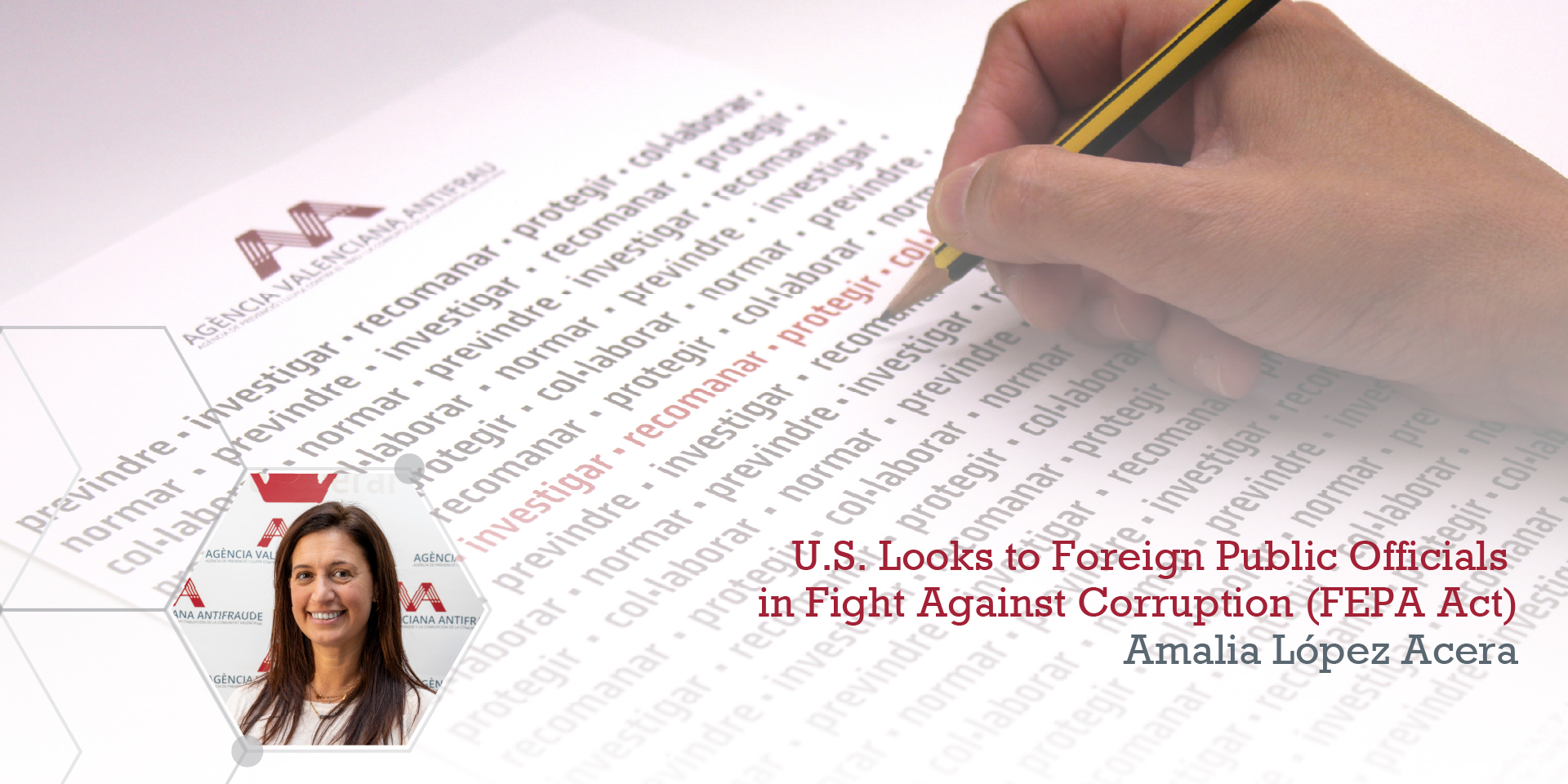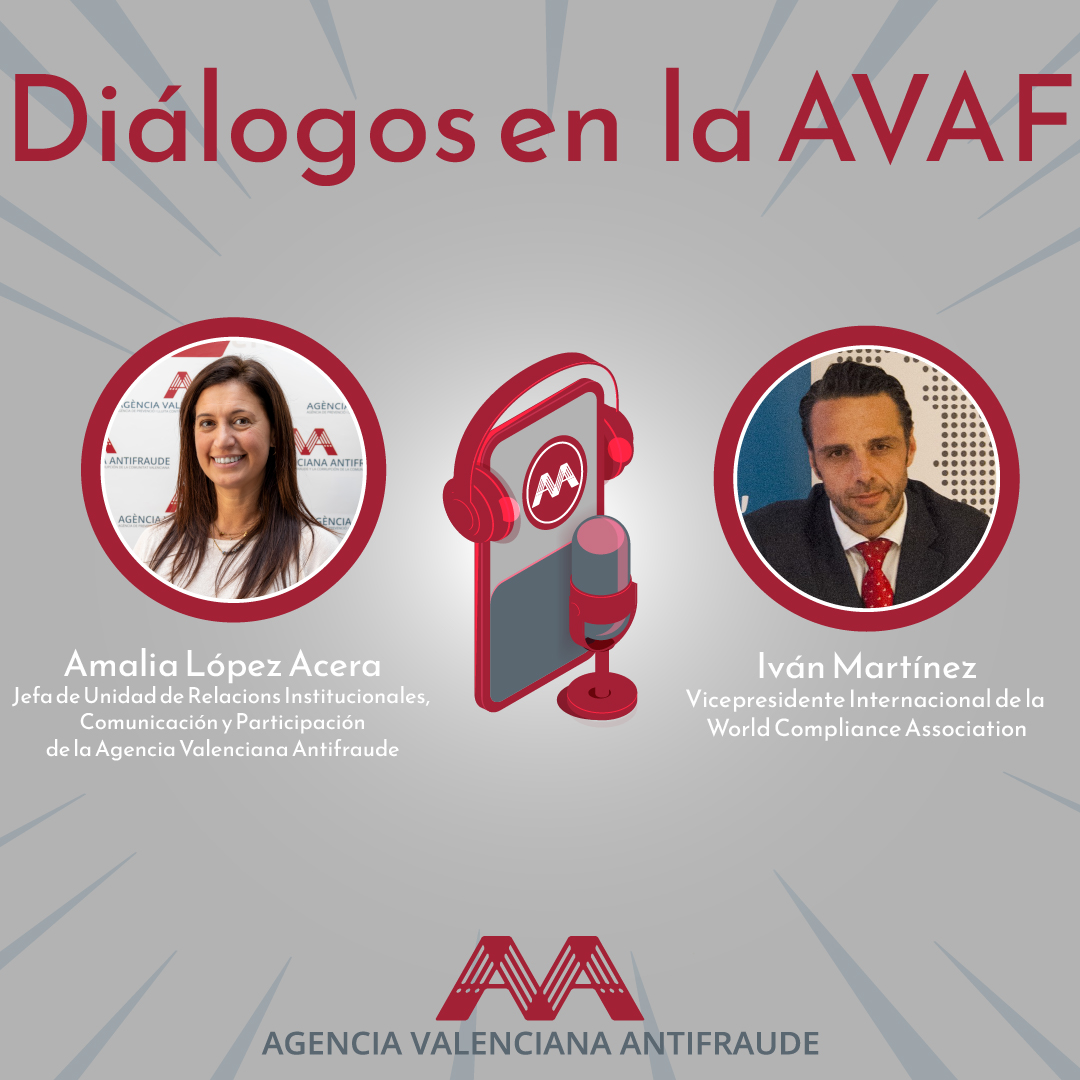València, May 9, 2024.-
The Valencian Anti-Fraud Agency has organized a Conference on irregularities in the execution phase of contracts in the public sector with the collaboration of the Legal Consultiu Council of the Valencian Community.
118 public institutions and more than 270 people attended the event, both in the Assembly Hall of the Consell Jurídic Consultiu and through the internet, where the central axis has been to give importance to the execution phase in public procurement, highlighting the irregularities detected by legal operators.
The day was inaugurated by the president of the Legal Consultiu Council of the Valencian Community, Margarita Soler and the director of the Agency, Joan Llinares.
The experts, speakers at the conference, have analyzed irregularities in public procurement and highlighted risks.
 Gustavo Segura, director of Analysis and Research at the AVAF, focused his conference on irregularities in public procurement detected in AVAF investigations.
Gustavo Segura, director of Analysis and Research at the AVAF, focused his conference on irregularities in public procurement detected in AVAF investigations.
Patricia Boix, senior lawyer of the Consell Jurídic Consultiu, focused on the casuistry of the modification and termination of contracts.
Irene Bravo, director of Prevention, Training and Documentation of the Valencian Anti-Fraud Agency, detailed in her presentation the risks contrary to integrity in the contracting execution phase.
Olga Escribano, from the Independent Office for Regulation and Supervision of Contracting (OIReScon), director of the Division of Promotion of Integrity in Public Contracting and Institutional Coordination) presented the last presentation of the day focused on the supervision of the execution of the contracts by OIReScon, highlighting the main problems and conclusions.
The training day included the contributions of those present through questions and articulated debates with all the speakers, moderated by María José Cervera, director of Administration and Human Resources of the Agency.
The closing of the AVAF day was attended by Cayetano García, regional secretary of the Presidency of the Generalitat Valenciana, Margarita Soler, president of the Legal Consultiu Council of the Valencian Community and Joan Llinares, director of the Valencian Anti-Fraud Agency.
Almost half of the registrations for the AVAF day come from public employees of the local administration (national qualified and technical personnel) with 49.48%, followed by the Generalitat Valenciana, with 26.46%, university personnel public of the Valencian Community and the instrumental public sector.
69.41% of the people enrolled in the training organized by the AVAF were women, compared to 30.59% men.
With this new formation, the Valencian Anti-Fraud Agency continues its work to prevent and fight against fraud and corruption in the Valencian Community.
The presentations from the AVAF Conference are available at the following links:
– Irregularities in public procurement and AVAF investigations. G. Segura
– The modification and termination of contracts: casuistry. P. Boix
– Risks contrary to integrity in the execution phase of the Contract. I Bravo
– Supervision of the execution of contracts by OIReScon: main problems and conclusions
For more information: formacion@antifraucv.es


